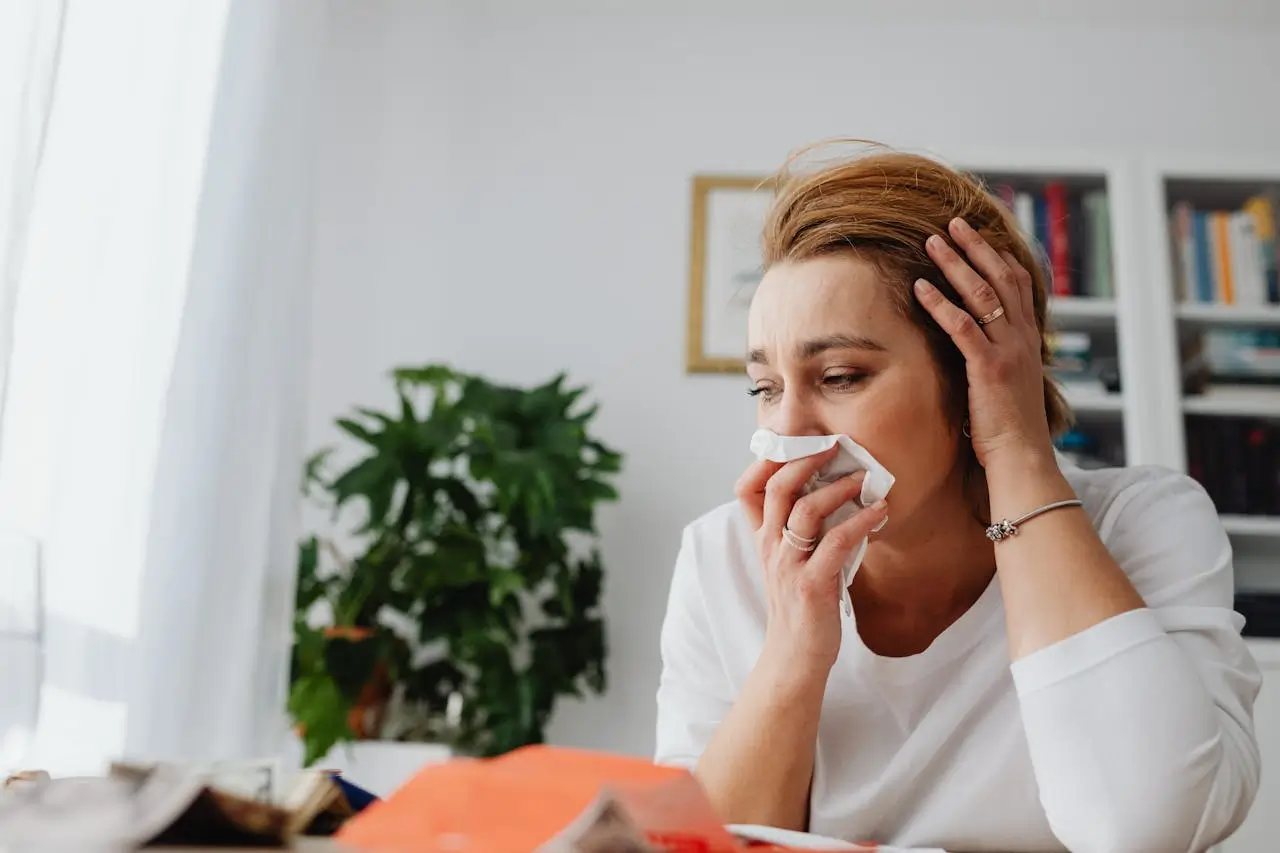Why Do I Get Cold Easier Than I Used To?
Feeling cold more often than you used to? You’re not alone. Many people notice that as they age or go through certain changes, they feel colder in situations where they used to feel perfectly comfortable. Let’s dive into why this happens and what might be causing it.
If you don’t have time to read the whole post, here’s the short answer: feeling colder could be due to factors like reduced muscle mass, slower metabolism, iron deficiency, or changes in blood circulation as you age.
Aging and Feeling Cold
As you get older, your body naturally goes through changes. One of the biggest reasons older people feel colder is the loss of muscle mass. Muscles produce heat in your body, and when you lose muscle, you lose that heat production. This is a normal part of aging, but it can make a big difference in how warm or cold you feel.
Another thing that happens with age is that your skin gets thinner. Thinner skin means you lose body heat faster. It’s like wearing a thinner sweater when you step outside in the cold—you’ll feel the chill more quickly.
Does Metabolism Play a Role?
Your metabolism is like the engine in your body. It burns calories and keeps your body running. A fast metabolism burns more calories and produces more heat, keeping you warmer. On the other hand, a slower metabolism doesn’t generate as much heat, so you might feel colder.
Things like losing weight or changes in your diet can affect your metabolism. If you’ve recently lost weight, you may have lost some muscle along with fat, which could make you feel colder.
The Role of Muscle Mass
Muscles are like the heaters of your body. They create most of the heat your body needs to stay warm. That’s why people with more muscle mass tend to stay warmer, even in cold weather. If you’ve lost muscle due to aging, weight loss, or being less active, it’s no surprise you’re feeling colder.
This is also why women, who naturally have less muscle mass than men, often feel colder in the same environment. It’s not about tolerance—it’s biology.
Iron Deficiency and Cold Sensitivity
Iron is a key nutrient your body needs to function properly. It helps your red blood cells carry oxygen, which is essential for producing energy and heat. If you’re low on iron, your body can’t make enough heat, leaving you feeling colder.
Iron deficiency is more common in women, especially during their reproductive years. If you’ve noticed you’re always cold, it might be worth getting your iron levels checked.
How Blood Circulation Affects Warmth
Your blood acts like a delivery system, carrying heat from your core to the rest of your body. When your body senses that it’s getting colder, it may limit blood flow to your hands and feet to keep your core warm. This can leave your fingers and toes feeling icy, even if the rest of your body feels okay.
Some people have a more sensitive nervous system that reacts strongly to cold temperatures. Their bodies restrict blood flow to the extremities more quickly, making them feel cold even in mild conditions.
Could Hormones Be a Factor?
Hormones play a big role in how your body regulates temperature. For example, women may feel colder during certain parts of their menstrual cycle due to changes in hormones like estrogen and progesterone. These hormones can affect your blood flow and heat production.
Menopause is another time when hormones can make you feel colder. Lower estrogen levels can lead to changes in circulation and body temperature regulation.
What Does the Research Say?
In this study by Clark M. Blatteis, researchers found that as people age, their body temperature tends to be lower, and they struggle more with extreme temperatures compared to younger individuals. This happens because maintaining body temperature relies on several body systems, like the heart, lungs, and muscles, which naturally weaken with age. For example, thinner skin and slower metabolism make it harder for seniors to stay warm. While exercises can slow some changes, others, like skin aging, are inevitable, making cold or hot weather more challenging for older adults.
Questions You Might Have
Is Being Cold All the Time Normal?
If you’re always cold and it’s interfering with your daily life, it’s a good idea to talk to a doctor. While feeling cold more often can be a normal part of aging, it can also be a sign of something more serious, like thyroid problems or anemia.
Does Weight Affect How Cold I Feel?
Yes, it can. People with more body fat don’t necessarily stay warmer because fat doesn’t produce heat—it’s more like energy storage. What really makes a difference is muscle mass. People with higher muscle mass burn more calories and generate more heat, keeping them warmer.
What Can I Do to Stay Warmer?
Staying active is one of the best ways to stay warm. Exercise helps build muscle and improves circulation, both of which can keep you feeling warmer. Eating a balanced diet with enough iron and other nutrients is also important. Wearing layers and keeping your environment cozy are simple but effective ways to stay comfortable.
Key Points to Remember
- Aging reduces muscle mass, which lowers your body’s heat production.
- A slower metabolism generates less heat, making you feel colder.
- Iron deficiency can leave you feeling cold and tired.
- Poor circulation focuses heat on your core, leaving hands and feet cold.
- Hormonal changes, like menopause, can affect how your body regulates temperature.
Thanks for reading! I hope this article helped you understand why you might be feeling colder than before. If you have any questions, comment below.

